Podcast: Play in new window | Download
Show Notes
In this episode, we talk the basics of attractive design. Use these design basics to increase your curb appeal and make your yard pop!
Topics:
- Visual Aesthetics
- Ensures pleasant experience
- Desirable place
- Sense of place, being
- Unity – cohesive design plan – not random use of elements
- Symmetry, asymmetry, form repetition
- Balance
- Plant unity across site
- Geometry
- Hardscape elements
- Form – implementation of a theme
- Repetition of a theme
Less important, but fun:
- Individuality – uniqueness of design
- Using own style to reflect in design
- Inspiration – what do you want to ‘feel’
- Evoke emotion through design
- Calm, escape (tropical), fresh, adventure, wild
- Character – What story can your yard tell
- History, thought-provoking, reflective, nourishing
- Functional Design
- Ensures practical design
- Provides value – usable
- Evoke emotion through design
- Accessibility
- Pathways
- Often too narrow
- Direct, clear routes
- Welcoming
- Open, inviting design
- Truck/wheelbarrow access
- Practicality
- Fits needs of your lifestyle
- Play space
- Relaxation
- Entertainment
- Proper shade
- Storage
- Water/electric access
- Compliance
- Meeting local building and zoning codes
- HOA requirements
Links for today’s episode:
- Launch Partay!
- How to save 27 hours of work
- Consult with Ben
- Paul Tukey
- Rolling River Nursery
- Houzz
I’m Ben Hale your virtual design guide
to help you and your family have a
healthy beautiful landscape with less
work what’s up and welcome to episode
five of the aesthetic ecosystems podcast
today we’re talking about good design
principles for low maintenance yards
really today we’re not gonna be talking
a whole lot about the low maintenance
aspect of things and how to save time in
your landscape instead what we’re gonna
do is talk more about how to have a good
design something that looks beautiful
something that is appealing to the eye
maybe somebody walking down the street
or even just you yourself would love to
look at and it’s something that’s kind
of an artistic landscape or a beautiful
landscape or even just an appealing
landscape there’s all sorts of levels
here of course where you can have this
highly curated landscape that is kind of
a hidden gem in itself or you can have
just a landscape that’s welcoming and an
opening space for people that come to
visit you whatever it is good design
really goes a long way toward changing
the space around you your property and
how it makes you feel how it makes a
visitor feel and how it enhances your
house and your your overall property so
let’s get right into it today then the
two buckets we’re gonna really talk
about our individual aesthetics so what
makes the landscape your yard appealing
to yourself and to other people and
secondly we’re gonna be talking about
functional design so what makes a
landscape work what makes it where it’s
not just this hassle the way it’s
designed to navigate around to get
around and to use functionally for your
house I love talking about this stuff
it’s a lot of fun just to have to really
have a cool design coming up with the
design for each individual property is
something of a prime
but it’s an enjoyable process if you do
it properly and and really you can
discover something you didn’t think
about when it comes to designing a
landscaping having a beautiful space so
this is kind of like carving the you
know chiseling out the rock tick to get
on to the underlying beautiful statue
underneath so you you don’t really know
where you’re going to start off with it
when you’re redesigning a landscape or
coming up with a brand new design but
the whole process altogether once you
get there you end up with something
beautiful and something worth cherishing
and prized so when it comes to visual
aesthetics the overall intent here is to
ensure a pleasant experience for
yourself you’re living there right you
and your family how do you have a
pleasant experience with your landscape
it’s not just something you walk across
on your way in and out the door it’s
where you live life if you have a good
landscape and so how do you enhance that
space to feel welcoming to you to feel
comfortable to feel relaxed and and to
have a pleasant experience in your yard
so you want to be there more often you
want it to be a desirable place you want
to have sometimes you even want it to
have a sense of place or a sense of
being so what’s the character of your
landscape that helps define you as a
person or your family or helps enhance
the way you feel about yourself so so it
might sound like a stretch but really
your landscape can be a reflection of
you and your personality so what you
make of your landscape can really
reflect who you are or what you feel
about your space there are two really
key important pieces that I want to
highlight for good visual aesthetics
when you get really into a design
landscape design there’s a lot more a
lot more elements that you could we
could talk about here but for the sake
of time and also for the sake of
simplicity I wanted to highlight two
specific characteristics and then we’ll
kind of talk about a few others
well but these first two are really
important and those are unity and form
they kind of play hand-in-hand so I’m
gonna try and tease out the differences
between these two characteristics but
without unity and without form you don’t
have a good landscape design there are
several other aspects as well such as
order and we can talk about those maybe
in a later episode but for now I want to
highlight unity and form so unity is is
what it means to have a cohesive design
plan so something that’s not just a
random use of elements we’re not talking
about you know a couple of trees that
you buy here and there and a couple
shrubs you buy here and there and throw
in your ground when they’re on clearance
at the local grocery store which fair
enough I’ve done this before so I’m not
calling you out necessarily to make fun
of you I’m just making fun of you with
myself a cohesive design plan is
something that’s thought out
holistically and laid out so your whole
space has a feeling of togetherness
that’s what unity is so some examples
are some characteristics of unity are
something like symmetry or asymmetry so
if you think a way to think about a lot
of this stuff is to consider art work
and symmetry can be the reflection of
colors across a composition when you’re
talking about your landscape or a piece
of artwork the reflection of structure
across your composition as well so it
could be the repeated use of certain
types of trees or the use of different
colors of blooms throughout the year and
and this visual elements such as the
structure of your plants or the color
can pull your design together so it
looks like one unified space you can
also similar to this as balanced so
you could have and this can even be an
asymmetrical designs as well but having
balance where you’re again having
elements across the place and trying to
draw your whole landscape together using
balance by putting certain elements
across your design to where it looks
visually balanced and this is kind of
tough for me to define here but
basically when you’re looking at a
completed design it doesn’t look like
one side is for lack of a better term
top-heavy
so you don’t want it to look like a
wedge right if we’re talking about
physical structure where you have you
know a bunch of small plants on the one
side of your design and a bunch of trees
on the other side so it would look kind
of weird so you want it to kind of
balance out somehow to look more unified
similarly you wouldn’t want to do the
same thing with texture or color where
you would you wouldn’t want to have a
bunch of pink roses on one side of your
design and then a bunch of grass on the
other side without anything tying the
place together so that’s what balance is
when you’re talking about your landscape
and you want to have unity a lot of
times the way you do this is using your
plants but you can also use hard scape
elements so architectural ‘hey how can
you enhance your landscape using hard
scape elements whether this is your
pathways throughout your landscape or
using some of the architecture of your
house and making sure that architecture
is also balanced through your landscape
in certain elements you can also have
unity with geometry so making sure your
design is consistent across your
landscape when you’re using the layout
of your garden beds so you want to have
your garden beds follow a similar
pattern across your site so this could
be you could have a curvilinear garden
plan where you have kind of arcing
arrangements throughout
site or you could have circular plan or
angular plans but you want to make sure
you stay consistent across your site for
the sake of visual unity so you don’t
want to have something that’s you know
you don’t want to have some circular
garden beds on one side of your
landscape and then another part you have
these harsh angular garden beds because
it doesn’t give a cohesive feel this is
a whole landscape design so that’s in a
nutshell what unity is we could talk a
lot more in depth about this there’s
whole chapters of landscaping books on
this stuff
but in a nutshell that’s essentially
what unity is and now we’re gonna talk
about form and this might sound a little
bit similar because it kind of is but
there are some nuanced differences about
form that are really important to have
both unity and form manifests themselves
in your landscape so going back unity is
your cohesive design plan so looking
holistically at your landscape and how
it’s planned
do you have conscious use of certain
design elements across your landscape so
unity is really about your your symmetry
or your patterns of structure as well as
balance so visual structure is what I’m
talking about form is the implementation
of a theme so your repetition throughout
the site the example I gave earlier with
the the types of garden beds the certain
shapes you have that’s kind of touched
and on form and unity so with unity
you’re making sure that you use the same
design in a balanced manner across your
landscape so you have some garden beds
that maybe if you’re staring at your
landscape some on the left some on the
right and maybe some in the middle kind
of pull your whole landscape together
the form piece is about repeating that
same consistent theme across those
garden beds so that that curvilinear
pattern or the angular pattern that we
were talking about
so the unity is using it across the
landscape in a balanced manner and form
is using it where it’s repeated
throughout and it kind of pulls
everything together as well I feel like
I’m not making this 100 percent clear so
let’s talk about in an example of a good
painting so a common popular painting
that a lot of people like is Van Gogh’s
posts Impressionists starry night
painting if you if that doesn’t ring a
bell you probably have seen it it’s a
kind of you know painting with some
swirly stars in the top and in a
beautiful landscape when we’re talking
about the unity of that painting there’s
a general overall composition and some
good use of focal points so you look at
the stars in the sky and then there’s
this structure in the front a big
towering piece that kind of draws the
eye as well but it kind of is all pulled
together into one good composition they
kind of play off each other with color
difference of colors and that sort of
thing I’m not an artist here it’s
probably showing through but I’m trying
to at least give you a general idea when
you’re talking about form there’s a use
of a similar artistic style throughout
the painting so in the general posts
impressionist style of Van Gogh he it’s
a very similar type of painting
throughout I actually don’t even know
what what to call it more than he it’s
it’s very impressionist style to me and
and so it would be odd to use if he had
used some pastels on one part and some
watercolors on the other part and then
maybe some some lead pencil in the
bottom so that wouldn’t be good for him
because it doesn’t repeat the similar
elements throughout and use a similar
composition so hopefully that helps kind
of drill this home that when you’re when
you think about them together is really
the most important piece anyway so so
when you think about both form and unity
how are you balancing out your landscape
design and how are you feeding patterns
throughout to give it a general theme so
it feels like a well-designed space
that’s welcoming and you want to be
there because it doesn’t feel juxtaposed
or contradictory so form unity both are
very important hard to describe
separately and so just kind of think
about having a design that plays well
together so you repeat elements
throughout your design you think about
your whole space when you’re designing
instead of thinking about individual
elements first you want to start big and
then work your way small okay
so those are the very important ones
unity and form let’s talk about some
other cool stuff too that really helps
with the visual aesthetics of your site
so individuality is very important when
you want to have a unique space and
that’s essentially what that means is is
the uniqueness of your design is what I
mean by individuality so when you’re
thinking about individuality how can you
use your own style
maybe it’s your interior decorating
style how can you use that to reflect in
your landscape design so so thinking of
what inspires you the types of patterns
you like and how can you use that in
your landscape and most likely there’s
some sort of landscape design that’s
been done that fits the the type of
design that appeals to you so definitely
get out there and look at stuff when
you’re kind of looking for landscape
ideas this is a bit of an aside here
definitely check out house H bow use
easy calm they have a ton of different
ideas about landscapes you can go check
out like cool things that people have
done and they just kind of post their
pictures there’s a ton of designers on
there that are doing cool stuff and they
that’s part of their marketing
strategies is they want to show all
their great designs and the cool stuff
they’ve done so it’s a great place to
look for inspiration it’s kind of
now it’s kind of like Pinterest where
you can go on there and look at ideas
and kind of save ideas for later so
definitely check it out if you’re
looking for inspiration and kind of sift
through a bunch of the different designs
you see there so back to individuality
so individuality is again how can you
reflect what appeals to you yourself
through your landscape to create a
unique landscape that is an inviting
space for you and also kind of shows a
bit of your personality to people that
come and visit as well
okay next let’s talk about inspiration
what do you want your landscape to help
you feel or what do you want a visitor
to feel when they come to your landscape
so landscapes have the capability of
evoking emotion it’s a it’s a patchwork
of art that you can make with your
landscape and so when somebody comes to
visit your landscape or when you come
home to visit your landscape what do you
want to feel when you get there do you
want to feel relaxed do you want to feel
calm do you want to feel like you can
escape somewhere so these are all
different emotions that you can feel
that can be a vocht through your
landscape some other ideas so like I
mentioned do you want to feel like you
can escape in your landscape so even if
you live in say a northern climate you
could design something like a tropical
getaway there are a lot of plants that
have a certain character that can give
the feel of something tropical even
though you’re in a northern colder
climate maybe not in the middle of the
winter right everything would probably
be a bit Brown and barren but but during
the growing season you could have
something that’s kind of like your own
little tropical escape it’s actually
really cool the in Cincinnati where we
live the Cincinnati Zoo and Botanical
Garden they have a beautiful arrangement
of gardens and different areas that
house the different animals they’ve
designed it to give you a different feel
and so they have a an area called Jungle
trails and
this space they designed they did it
very well where you walk into this space
and they’ve used plants that can grow in
our climate in zone 6 which gets pretty
cold in the winter and but during the
warm seasons this space looks like the
jungle you feel like you’ve walked into
the jungle and so you can design your
space with plants that are well adapted
to your region that don’t require tons
of work but due to their shape in their
patterns you can feel like you’re in a
different space so you can escape so do
you want to feel like you can escape or
do you want to feel relaxed if you want
to feel relaxed think about certain
plants that maybe can block out certain
views other plants that might you know
whisper in the wind they based on how
they how they blow in the wind they
might make some noise something that can
attract birds maybe to to calm and feel
calm and relaxed with the sounds of the
birds think of things like that what do
you want with your landscape how do you
want to feel and what type of plants or
what type of space would help you feel
that way and there are all again there’s
all sorts of landscapes that have
already been designed to have oak these
emotions maybe you want something that
feels wild or adventurous so think about
designing a wild space for your yard
that you can kind of hide away in and
when you go to a certain part of your
yard and it might help you feel that way
it might be a little bit of an adventure
to go there maybe you want something
that’s fresh feeling so think of like
some sense that different plants could
have throughout different seasons and
maybe just a look that’s more vibrant
and invigorating you can do all of this
you can have this inspiration through
your landscape by designing it in
specific ways what about character so
when I mean character and I think about
what story could your yard tell this
might seem like a stretch again but
think about going to like a tea garden I
don’t know if you’ve ever been to a tea
garden which is an Asian gar
design style that takes you on a journey
through the landscape and actually tells
the story of history as you go through
the landscape is part of the ritual of
the tea ceremony so it’s really cool
stuff actually to read about if you’re
randomly interested in a tea garden but
the point I’m trying to make here is
your landscape can have character it can
tell a story and maybe it won’t be like
a well designed plot sequence like you
see in a movie but it can still convey
something to the visitor I can convey
something to you when you come home to
it so what story can your yard tell this
could be a story of history so you could
include certain historical elements so
you see this in very classical garden
designs you feel like you’re part of
history when you go there it could be
thought-provoking so it could kind of
convey some meaning through the
landscape so there could be some
symbolism in what how the gardens are
designed or even some of the elements
that you place in the gardens
it could be reflective or even
nourishing so nourishing what about an
edible landscape right so the story it’s
telling you is that this land provides
for you so you could have certain fruit
producing trees you could have
decorative gardens interspersed with
vegetables and there are plenty of
really attractive vegetables actually
that’s in case you’re wondering
but overall yet
the character of your landscape can
really help you escape again can help
define the space to where it’s something
inviting something appealing to the eye
brings in visitors and tells the story
to them and conveys meaning and leaves a
lasting impression on people that visit
your landscape okay so in general that’s
why I wanted to cover for visual
aesthetics when you’re considering
design so just to kind of recap things
here we talked about most importantly
unity and form and they kind of play on
each other they’re kind of similar in
certain
waise it’s really hard to have good
unity without good form in good form
without good unity so thinking of them
both together since I had spent so much
time trying to define the difference of
them since they’re both important think
of them both together is how does your
site feel cohesive how does it kind of
meld together as one space one
individual space that is yours and how
does it appeal to the eye how does it
feel a well balanced and have a general
theme throughout to to feel like a
welcoming space in a well-designed space
aside from unity and form there are some
some kind of fun characteristics you can
consider when developing your design and
those are how does how can your
landscape have individual reality how
can it be unique how can it have its own
style that maybe reflects how you feel
or maybe reflects some of the space
around you what your region is but how
can it just be different than the
general postage stamp yard that you see
inspiration how do you want to feel when
you come to your landscape what emotions
should your landscape convey to you do
you want to feel happy do you want to
feel refreshed do you want to feel
invigorated do you want to feel calmed
or distressed these are all things you
can design your landscape to help you
feel a certain emotion well quarter what
sort of character do you want your
landscape to have what sort of story can
your yard tell you can you convey a
certain feeling or thought through your
landscape to visitors and to you when
you come home so this is a lot of fun
stuff here actually when you really get
into the nitty-gritty of coming up with
a new design this is the stuff I love to
do actually sometimes I feel like I
enjoy the design process the the
implementation process although as I say
that I realize I also love just being in
a great beautiful landscape so a lot of
fun to all this stuff I hope you feel
that way at least and let’s get in now
to functional
it’s really important to have a
functional landscape because with even
with a visually pleasing an
aesthetically pleasing landscape if you
don’t have a good functional landscape
if you miss the function part it’s not a
pleasant experience once you’re in the
landscape so it might be nice to look at
but it might be just a pain in the
behind to actually live there and you
don’t want something like that because
it’s going to irritate you it’s gonna be
something that is more of a burden than
a benefit so you want to make sure you
have this functional piece right so when
we’re talking about functional design
what we’re saying is you would ensure
you have a practical design does it make
sense how you’ve designed your landscape
does it provide value to you in the ways
you need to have your landscape used is
it a usable space for you and your
family so think about like what do you
want to do in your landscape does it
have to have certain access points does
it have to have certain space for
relaxing or for playing those are all
functional pieces that you want to make
sure you include in the design process
so again without the functional pieces
you can’t use your landscape properly so
the the first and most important piece
for me is accessibility can you properly
access your landscape one of the most
irritating pieces but really often
poorly done pieces in landscape design
is access I believe so a great example
of this is the typical front yard front
door pathway if you look at most houses
especially the ones built mid-century
they have these pathways that lead from
the driveway to the front door so this
is the welcoming pathway to your front
door to welcome guests to bring you home
after a long day’s work and generally
they’re about two feet wide it’s hardly
wide enough for one person to walk down
so if you have a group of visitors
coming to visit you or say it’s just a
mother in her her you know two-year-old
kid it’s a difficult access
point four even just two small people to
walk down a pathway to come to your
front door so it’s almost like you’re
restricting your access through your
pathway and this is where it’s really
important to have a space that feels
welcoming to bring people into your
space and also is just comfortable to
navigate that’s the big thing with
accessibility as well is do you have a
pathway again to kind of go off this
theme of the front yard path since it’s
so poorly done so often does it directly
access your front door in a way that’s
visually pleasing but also doesn’t take
you far out of the way so so often these
pathways also like going a big wide loop
or something where most of the time
people end up just cutting across the
grass anyway and then you end up with a
dirt patch so need to make sure your
accessibility is done properly where you
can navigate what you need to do it
feels comfortable to do so at the same
time and it feels welcoming now–don’t
since we use the front door example in
the front yard pathway make sure you
don’t forget the side house the back of
the house anywhere you need to access on
your landscape what needs to be paved
what doesn’t need to be paved but what
needs to be open for access as well most
often times they’re designed to narrow
and to indirect so make sure you get
those both right in addition make sure
they’re direct clear routes make sure
they’re open and inviting and lastly
make sure to if there’s any place on
your landscape that needs access from a
wheelbarrow or a truck or some sort of
delivery vehicle that you can do so
without inhibition you don’t want to
have to every once in a while make some
sort of delivery but you can’t get there
and then you need to carry it by hand or
whatever a long distance just because
you didn’t plan it properly so make sure
that’s planned and this could mean two
if you have a backyard that’s fenced
make sure you have a part of it that
opens wide enough to fit something back
there if you ever need to access it okay
enough about access
let’s talk about practicality this
sounds like exactly what it says is your
landscape practical for the UC one again
a lot of times with very well designed
landscapes visually they get the
practicality piece wrong so make sure
you have a practical landscape something
that your family wants to be part of and
it’s easy to be part of most importantly
so does it fit the needs of your
lifestyle if you have a very active
family outdoors
do you have something where you have
space to be active does it have the
right amount of space do you have play
space for your kids
so whatever sports or whatever they want
to play do they have the space to do it
if you have young kids do you have space
that inspires the imagination it allows
them to explore in to have an
imaginative play throughout is there a
space for relaxation with this it also
goes entertainment so do you have
somewhere you can relax maybe that’s a
bit more secluded but you also have some
place that’s open and welcoming for a
larger group for entertainment for both
of these types of places especially in
warmer climates or where it gets warm
during the summer
make sure these relaxation entertainment
spaces have proper shade or proper cover
in case of weather do you have the right
amount of storage in your landscaping
and good access to it as well is it
convenient to access your storage but it
isn’t a space where it’s not going to be
you know right on top of your
entertainment space make sure it’s
somewhat secluded but not so far removed
from your landscape where it’s a burden
to get there and then you don’t want to
do the the maintenance that you need to
do do you have the right water and
electric access these are often
overlooked points too so you could even
it could even influence where your
garden might be designed you’re certain
Gardens that require maintenance of
water or electric it could influence
where entertainment spaces are located
so make sure you either establish the
right water or electric accesses or
design the right spaces close enough to
these access points so the last bit here
with functional design I want to touch
on very important as well is compliance
so make sure what you’re designing meets
local building and zoning codes as well
as HOA requirements if you live in an
HOA it’s very important to do this stuff
because once you establish the landscape
it can be a costly process and it can
also cost a lot if you require to remove
stuff or pay fines for not doing things
properly so when you’re talking about
local building and zoning codes
depending upon where you live whether
it’s a town or a city or a Township or
an unincorporated space there’s
different levels of requirements for
each space so make sure you check with
those different municipalities to make
sure that you’re doing the right thing
before you actually go and establish
your landscaped plans
similarly there’s sometimes multiple
levels you need to talk to so for a city
if you live in a city for example you
may need to check with your city you may
need to check with your HOA you may also
need to check with your County so make
sure you’re doing the right checks based
on what you’re designing so that you
have the right checks in place at all
the necessary spaces so you’re not fined
or you’re not required to move or tear
down something in retrospect that pretty
much wraps it up for what you really
need to focus on for a good design so if
you stick to these good designs
principles when you’re designing your
landscape or when you’re talking to a
designer these will pretty much cover
the base of having a pretty good outcome
for your design there’s a lot more we
could talk about here for sure but this
covers the basics I want you to go take
action and if you’re thinking about
designing a space just think think big
picture first then kind of drill down
even if you’re just planning on putting
in a garden make sure you think big
picture first how does it fit into your
overall landscape or your long-term
vision of your landscape first before
you go and take action
okay now it’s time to talk about the
launch party guys excuse me not party
but partay the launch party is for the
first two months of the show from March
have some fun to help spread a war
spread the word about the show I really
appreciate your enthusiasm and interest
in this show and I want to get you guys
involved and have some fun while we’re
doing it so this is a chance to have
some fun too for us to get connected to
win some prizes and let’s talk about the
prizes before we talk about what we’re
doing so what are the prizes weakly I am
offering a free consultation with me Ben
Hale which is normally a $99 value so
one person each week that gets involved
in the launch partay gets a free
consultation I’m also giving away a free
offer for one of my ebooks ten ways to
get more beauty with less work which is
the $19 value next the grand prize there
is only one of these we’re giving away
through this whole launch party so at
the end of the launch partay the organic
lawn care manual by Paul Tookie
so Paul Tookie himself has offered to
give away one free book to a lucky
winner that’s getting involved in this
launch party and this book is all about
how to manage a healthy lawn from
anything from a golf course style on to
your low maintenance lawn which of
course is something I prefer here on
this show right I own this book I’ve
read this book multiple times I’ve give
it away it’s a kind of a tattered and
worn version that I have and I use some
of these practices in my own lines so I
love this book and I highly promoted as
well and you’ll hear me talk about it
throughout the show but Paul Tookie has
been kind enough to offer a copy of his
book as a grand prize and there’s also a
special surprise for everybody that’s
going to be getting involved in the
launch partay the rolling river nursery
out of California has offered a special
surprise for everybody that’s involved
the rolling river nursery is a USDA
certified organic nursery so I went
online and I looked around for nurseries
that have online availability ship
through the continental US
have some great offerings and rolling
river nursery is being kind enough to
become involved with our launch party
and there not only are they online
availability but they also are certified
organic which means they don’t use any
harmful herbicides or pesticides that
you have to be concerned with your
family about and so what you’re getting
is a safe and healthy plant they also
offer a ton of edible plants and trees
and shrubs cacti and succulents so they
offer several trees and shrubs that are
adaptable throughout the most of the
United States so definitely worth
checking them out and in addition these
guys are also involved with a non-profit
in Southern California to help local
food movements called planting justice
org so if you want to learn more about
them you can go to rolling River nursery
calm and I also want to give a shout out
to Paul to Kies website for his organic
lawn care manual and his other works is
Paul to keep calm
PA UL t uke why and to sum up guys okay
you want to learn how to get involved
with this launch party go over to
aesthetic ecosystems calm slash pod
launch and that’s P o dl au n CH there’s
a link in the show notes and that’s
that’s gonna give you all the
instructions on how to get involved
there’s two ways specifically to get
involved one is through sharing with
your peeps on Facebook and the other is
through leaving a review on iTunes
both of these are gonna help spread the
word about the show and get other people
other friends listening to it as well
and I sure appreciate your help here and
and likewise this is gonna be a fun time
so so go on over and to aesthetic
ecosystems comm slash pod launch to get
involved okay so I definitely want to
hear what you think about today’s
episode if you’re interested in leaving
a comment make sure you go over to
aesthetic ecosystems comm slash episode
five and also for any links make sure
you check the show notes so for today I
didn’t really provide a whole lot I
talked about house comm Hou ZZ com
also check out if you want to leave a
comment check out the the podcasts
notes over at aesthetic ecosystems calm
slash episode 5 also if you want to save
time in your landscape without actually
changing any design I have a free
giveaway I’ve talked about already its
how to save 27 hours in your landscape
you can check that out at aesthetic
ecosystem calm slash 27 hours that’s to
want to hear more episodes I’d love to
have you hit that subscribe button and
to get me downloaded into your what do
you call it podcast feed I guess right
yeah get me downloaded into your podcast
feed and we’ll talk some more I
definitely want to help you transform
your landscape for the better transform
your life through your landscape so hit
that subscribe button and I’d love it if
you’d go over to iTunes or stitcher or
whatever you’re listening to and leave a
review these reviews are very important
in helping me get into the ratings get
seen by more people make a bigger
difference that’s what I’m here to do is
to try and make a bigger difference with
as many people as possible to transform
our lives through our landscapes so
thanks for tuning in today and make sure
you live with passion and make tomorrow
better than today
[Music]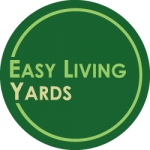

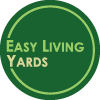
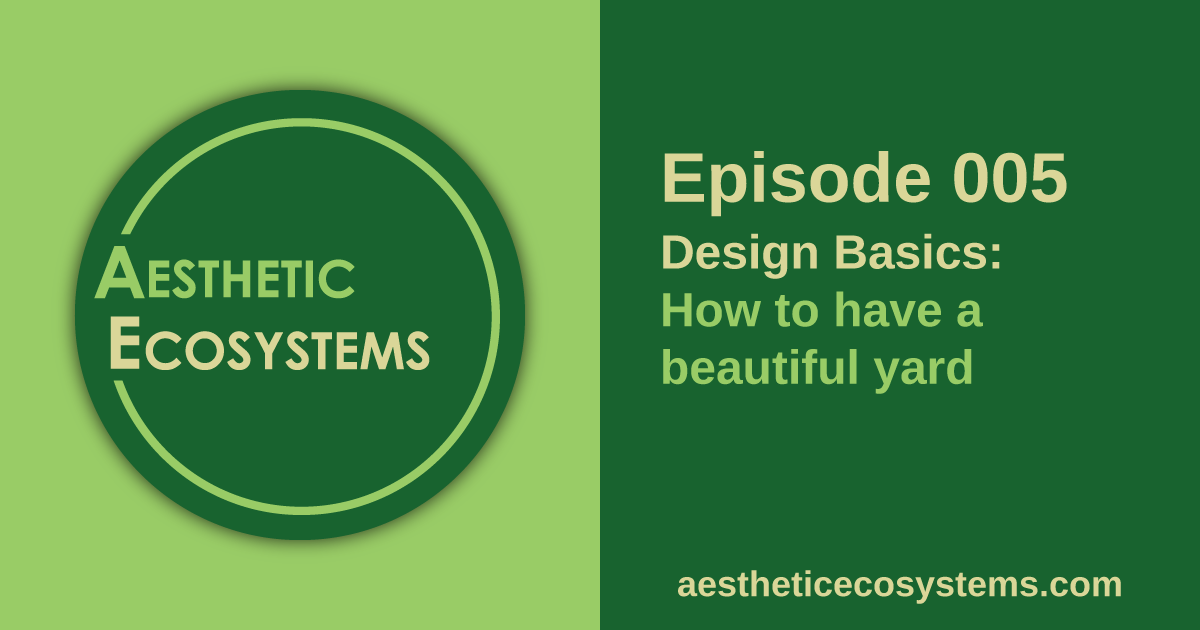
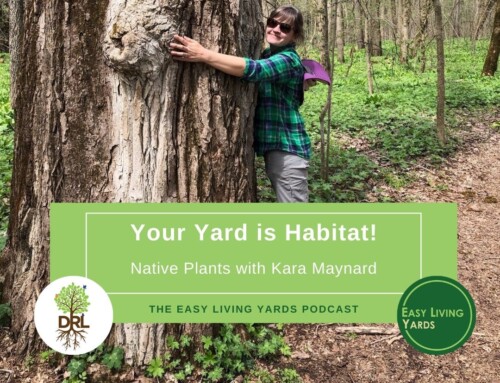
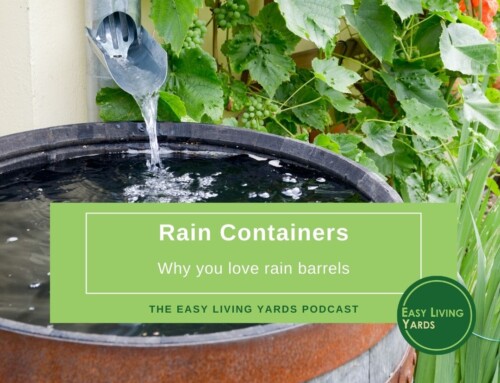
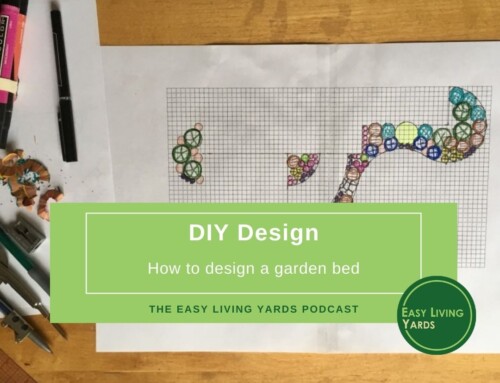
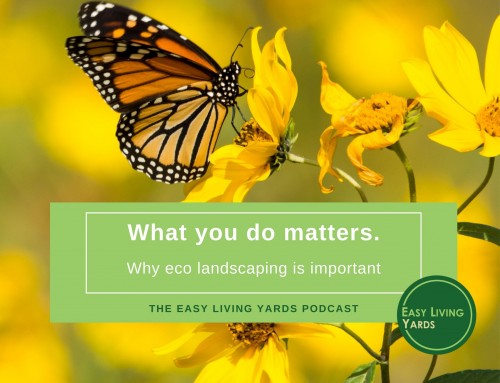
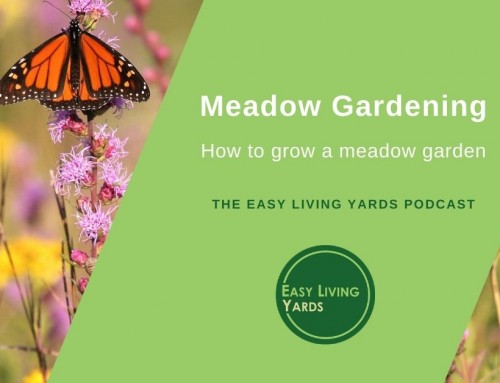
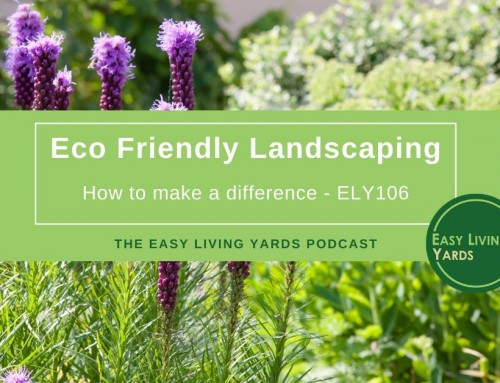
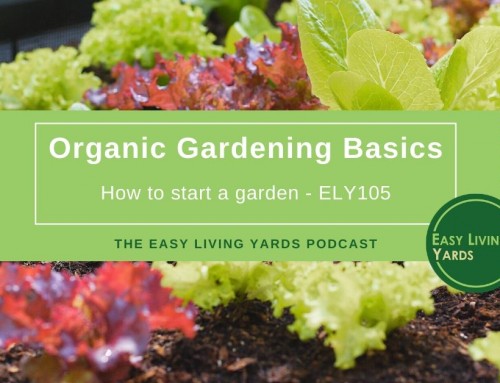
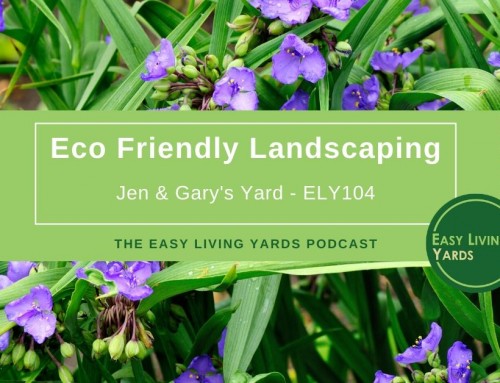
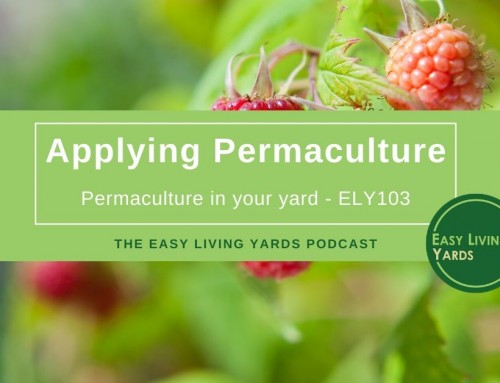
Leave A Comment